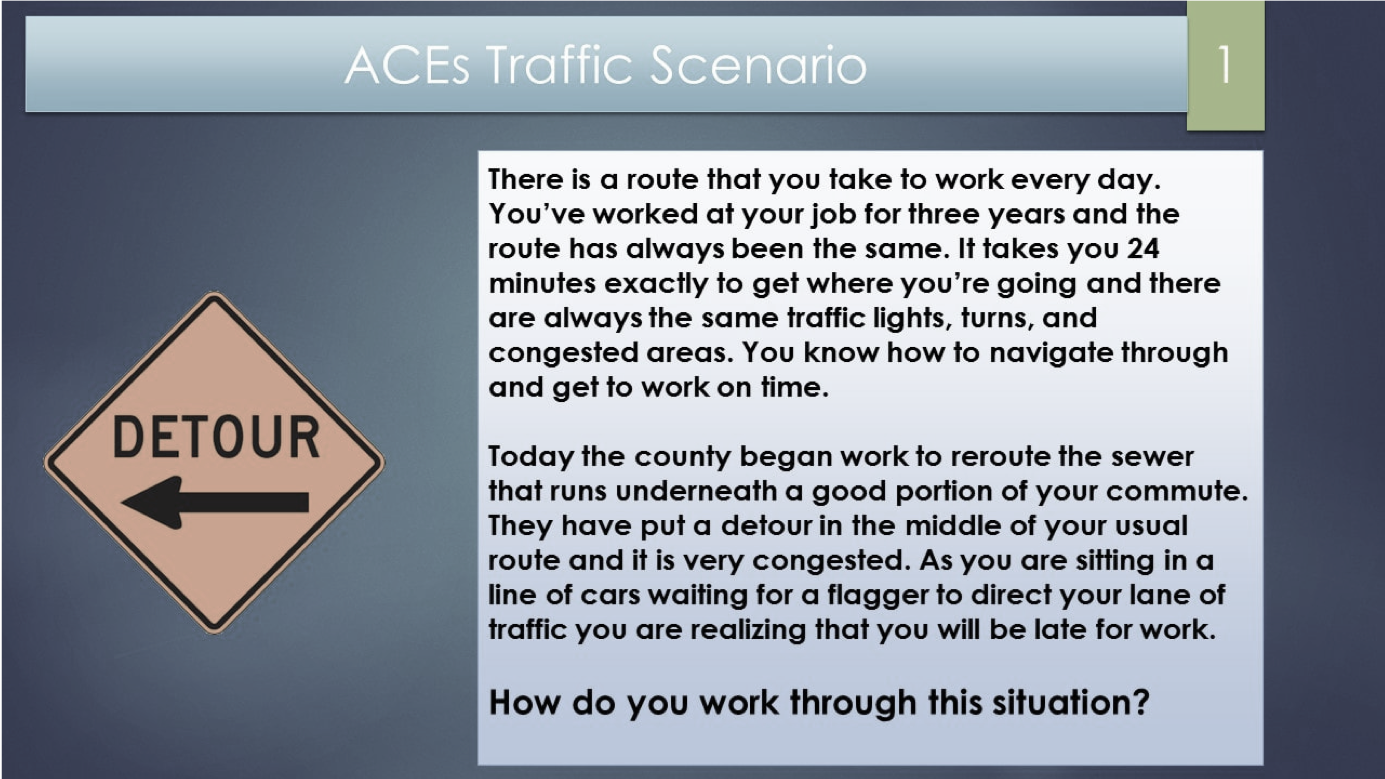Social and Emotional ACEs |
Page 17 |
Children with high ACE scores aren’t usually able to function on a typical social or emotional spectrum.
This transcends past temperament and disposition and actually results from a lack of opportunity to learn social and emotional skills because they are always in a state of high toxic stress.
Imagine this scenario:
This is a common occurrence for adults as road construction is seemingly endless. Usually we allot some extra time for hiccups during our morning commute but there are other things that can derail our usual routines. It is frustrating but we work through it and continue with our lives. Your answer to the question may depend on your brain's ability to adapt to stress and work through it.
A child in a social situation is very similar to this scenario. Things usually go routinely when they are playing blocks with a friend at daycare but sometimes there is a new friend that wants to join. A child with zero ACEs will be able to respond appropriately to the positive stress that this brings and adapt and overcome. They will even learn from the experience. There may be some adjustment period or some frustration but typically everything works out even if adult intervention is needed. In the traffic scenario this person would have probably allotted for extra time in case of a traffic stop and called their boss at the moment they suspected a potential late start.
A child with several ACEs, however, will struggle with the traffic scenario. They will have impulsive reactions probably due to a lack of planning. It is not that they do not want to have a less stressful experience, it is that they do not know how to. Likewise, the child playing in the block area with a friend may have adverse reactions to the new friend joining in the play. She may yell or cry as a reaction to the newcomer because she isn’t able to cope with this positive stressor. All stress at this point is just too much to handle unless she has been taught how to cope with small positive stressors.


